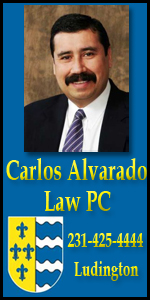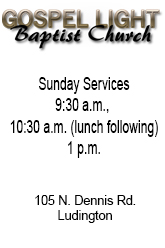 The Mitten Memo. By Nick Krieger.
The Mitten Memo. By Nick Krieger.
The Michigan Constitution is not akin to other state laws that may be changed by the Legislature at will. It is the fundamental charter of our state government. It is the sacred, organic document that gives Michigan life. It can only be amended by a statewide vote of the people.
I am skeptical whenever Michigan’s legislators place a proposed constitutional amendment on the ballot seeking to alter the elemental rules that restrain the Legislature itself. The proposed constitutional amendment that makes up Proposal 1 would do just that.
Some legislators have been forthcoming about the structure of Proposal 1 and the ends it would accomplish. Others have not. But it is clear that both conservatives and liberals are contributing to the confusion. I have spoken widely on the topic of Proposal 1, mainly in southeast Michigan. Wherever I go, I find that the people who claim to have the best understanding of Proposal 1 are often the people who spread the most misinformation about it.
We all agree that Michigan’s roads are in bad shape. But the proposed constitutional amendment on the May 5 ballot will not fund our roads. The constitutional amendment, itself, pertains almost entirely to education funding and local revenue sharing.
We’re told that Proposal 1 would result in a slight net increase in annual School Aid Fund (SAF) revenue. However, we’re not told that most of this additional revenue would never make its way to K-12 classrooms. This is because Proposal 1, if adopted, will alter the overall nature of the SAF and will constitutionally authorize the use of SAF money for several brand new purposes including community colleges, career and technical education programs, and certain scholarships. We simply do not know how much of the additional SAF revenue might be dedicated to these new uses.
There is no binding formula in place to tell us how much SAF money will be spent on each of these programs; nor are there any past data to guide us in this calculus. What do we actually know? If Proposal 1 passes, the allocation of dollars among the five SAF uses will be left entirely to the whims and uncertainties of the legislative appropriations process. The state constitution will have nothing to say about the manner in which the SAF money is divvied up among these five areas.
Accordingly, and contrary to what you’ve heard on the television ads, it is entirely possible that Proposal 1 could lead to a decrease in aid to K-12 schools, siphoning off money that was formerly earmarked for primary and secondary education for new, untested programs.
As for the 10 public acts that are tied to the outcome of the vote, there are more questions than answers. True, two of these public acts would alter the structure of Michigan’s motor fuel tax and dedicate the resulting fuel-tax revenue to transportation purposes, including roads and bridges. But these same acts would dedicate most of the fuel-tax revenue collected during fiscal years 2016 and 2017 to debt service on certain transportation bonds. In other words, even if Proposal 1 passes, no large-scale road construction (other than patching and resurfacing) will begin until the fall of 2017.
On a more academic note, the Legislature’s decision to tie the effectiveness of the 10 public acts to the statewide vote is likely unconstitutional. The Michigan Constitution provides only one way in which the Legislature can make the effectiveness of a public act contingent on the outcome of a statewide election: It may submit a public act to a statewide vote and declare that the act will not take effect unless it is “approved by a majority of the electors voting thereon.”
It unavoidably follows that the Legislature may not submit a package of public acts to the voters en masse, tying their effectiveness to a separate, proposed constitutional amendment. Yet this is exactly what the Legislature has done. Instead of submitting each act to the voters individually as required by the state constitution, the Legislature has dubiously tied the effectiveness of all 10 acts, as a single package, to the outcome of the May 5 vote. The Legislature’s blatant disregard for our constitution, standing alone, gives me enough reason to vote no.
Further, consider this fact: If the voters approve Proposal 1, the Legislature will be perfectly free to amend or repeal any of the 10 public acts at any time. Therefore, it is completely misleading to say that Proposal 1 will “guarantee” additional revenue for Michigan’s roads. The promised road funding, which is set forth in two of the 10 public acts, would be “guaranteed” only to the same extent that any other statutory creation is “guaranteed.” That is, not at all.
And what about the tired, old argument that there is no plan B? In actuality there are several plan Bs. The Legislature could simply raise the motor fuel tax without changing the sales-tax structure. Or the Legislature could revisit the idea of levying a sales and use tax on services. Perhaps Michigan could even adopt a graduated income tax. There are many options to raise revenue; our Legislature just lacks the will to do it.
We’re constantly bombarded with ads telling us the roads are so dangerous that Michigan’s children aren’t safe. If our roads really present an immediate safety emergency, shouldn’t the Legislature have devised a road-funding solution by now? By punting the issue to the voters, our lawmakers are attempting to avoid blame for raising taxes. They seem to have forgotten that they were sent to Lansing to do a job.
Proposal 1 is complex and difficult to understand. It would make ill-advised constitutional changes and is, itself, of questionable constitutionality. It would add uncertainty to the allocation of education money and could even result in lower per-pupil foundation grants going forward. Lastly, how many of us can say that we truly trust the Legislature to allocate the dollars as promised? Trusting the Legislature to follow the constitution when money is involved is like trusting the proverbial kid in a candy store. I’m voting no, and I think you should too.
Nick Krieger is a graduate of Ludington High School, earned a bachelor’s degree from Michigan State University, and holds a law degree and master’s degree from Wayne State University Law School. Nick works as an attorney for the Michigan Court of Appeals and owns a home in Ludington. The viewpoints expressed in The Mitten Memo are Nick’s own, and do not reflect the views of the Michigan Court of Appeals or Media Group 31, LLC and its affiliates: Mason County Press, Manistee County Press and Oceana County Press. Contact Nick via e-mail at nickkrieger77@gmail.com or follow him on Twitter at @nckrieger.























.png)





















